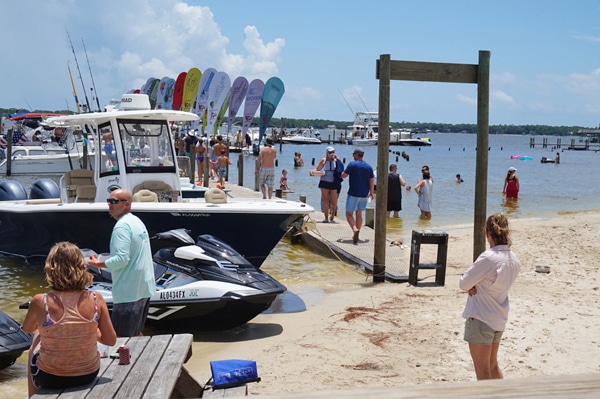Choosing the right dumpster size for your project can feel overwhelming. This comprehensive guide breaks down the pros and cons of renting small and large dumpsters, empowering you to make the best choice for your needs and budget. Whether you're tackling a small bathroom remodel or a full-scale demolition, we've got you covered.
What's the Volume Capacity Difference Between Small and Large Dumpsters?
Dumpster sizes are typically measured in cubic yards, reflecting their volume capacity. A small dumpster, often a 10-yard or 15-yard unit, is suitable for smaller projects. These smaller units are ideal for residential cleanouts, minor home repairs, or small renovation projects generating a limited amount of waste. Larger dumpsters, such as 20-yard, 30-yard, or even 40-yard containers, offer significantly more volume. These are necessary for larger-scale projects like roof replacements, demolition jobs, or extensive landscaping overhauls where a substantial amount of debris needs removal. The choice between dumpster sizes hinges directly on the volume of waste your project will generate, affecting factors such as rental cost and waste disposal efficiency. Accurate estimation of project waste volume is crucial for choosing https://jsbin.com/ the appropriate dumpster size.
- Small Dumpsters (10-15 yards): Ideal for small cleanups, minor renovations, small-scale demolition projects, and yard waste removal. Large Dumpsters (20-40 yards): Suitable for major renovations, demolitions, large-scale construction projects, and extensive landscaping.
What Are the Cost Differences Between Small and Large Dumpsters?
The cost of renting a dumpster varies considerably depending on size, rental duration, location, and current market demand. Generally, smaller dumpsters have lower rental fees due to their reduced capacity and transportation costs. Larger dumpsters command higher prices because they require more resources for transportation and disposal. Additional factors impacting the final price include delivery fees, potential fuel surcharges, and disposal fees based on the weight of the waste. Getting multiple quotes from different waste disposal companies is recommended to compare prices accurately and find the best deal. Weighing the cost against your project's waste generation volume will help you find the most cost-effective solution.
Dumpster Size (Cubic Yards) Estimated Rental Cost (USD) Weight Limit (lbs) 10 $300 - $500 2000-3000 20 $500 - $800 4000-6000 30 $700 - $1200 6000-9000 40 $1000 - $1500 8000-12000
Note: These are estimates and can vary significantly based on location and provider.
How Do Weight Limits Vary Between Small and Large Dumpsters?
Dumpsters have weight limits, and exceeding these limits results in significant overage charges. Smaller dumpsters naturally have lower weight capacities compared to larger ones. A 10-yard dumpster may have a weight limit of around 2,000 to 3,000 pounds, while a 30-yard dumpster might accommodate 6,000 to 9,000 pounds. Overloading a dumpster can lead to safety hazards during transportation and increased disposal costs. Carefully estimating the weight of your waste, factoring in materials like concrete, wood, and metal, is crucial to avoid unexpected expenses. Understanding weight limitations and carefully planning waste disposal can significantly minimize potential costs and safety risks associated with dumpster rentals.
What is the Convenience Factor for Each Size of Dumpster?
Convenience is a key consideration. Small dumpsters are easier to maneuver and position on-site, particularly in tight spaces or areas with limited access. Their compact size simplifies loading and makes them ideal for projects where waste volume is limited. Large dumpsters, while capable of handling more waste, require more space for placement and may necessitate additional maneuvering equipment for efficient loading. The ease of access also impacts project efficiency. Assessing your project's location and available space is crucial to determine which dumpster size offers optimal convenience.
What Are the Environmental Impacts of Using Different Dumpster Sizes?
Choosing a dumpster size impacts environmental sustainability. Overestimating your needs leads to unnecessary waste transport, contributing to carbon emissions. Conversely, underestimating might necessitate multiple rentals or inefficient waste management. Opting for the appropriately sized dumpster optimizes transportation, minimizes fuel consumption, and reduces your environmental footprint. Responsible waste management involves recycling whenever possible, sorting materials before disposal, and selecting environmentally conscious waste management providers.
What Are Common Misconceptions About Dumpster Rentals?
One common misconception is that larger is always better. Overestimating your waste volume leads to unnecessary costs. Another misconception is neglecting weight limits, resulting in hefty overage charges. A thorough understanding of project waste, including materials like concrete or heavy debris, is essential for accurate weight estimation. Proper planning avoids unexpected costs and ensures a smooth waste disposal process.

When Should You Choose a Short-Term Versus a Long-Term Rental?
Rental duration significantly affects dumpster rental costs. Short-term rentals are suitable for smaller projects with quick completion times. Long-term rentals prove economical for larger projects extending over several days or weeks. Accurate project timeline estimation determines the most cost-effective rental period. Understanding your project's duration ensures you avoid unnecessary rental fees or waste disposal delays.
FAQ Section
What factors should I consider when choosing a dumpster size? The volume of waste, weight of materials, project duration, and available site space are primary factors to consider.
Can I use a small dumpster for large-scale cleanouts? No, using a small dumpster for extensive cleanouts will likely necessitate multiple rentals, increasing costs and logistical complications.
Are there permit requirements for dumpster rentals? Permit requirements vary by location. Check with your local authorities to ensure compliance.
How long can I keep a rented dumpster on-site? Rental agreements specify allowed durations. Exceeding the allotted time often incurs additional fees.
Choosing between a small and large dumpster involves careful consideration of volume, cost, convenience, and environmental impact. By accurately assessing your project's needs, you can select the ideal dumpster size for efficient, cost-effective, and responsible waste management. Contact a waste disposal provider today to discuss your options and get a customized quote.
